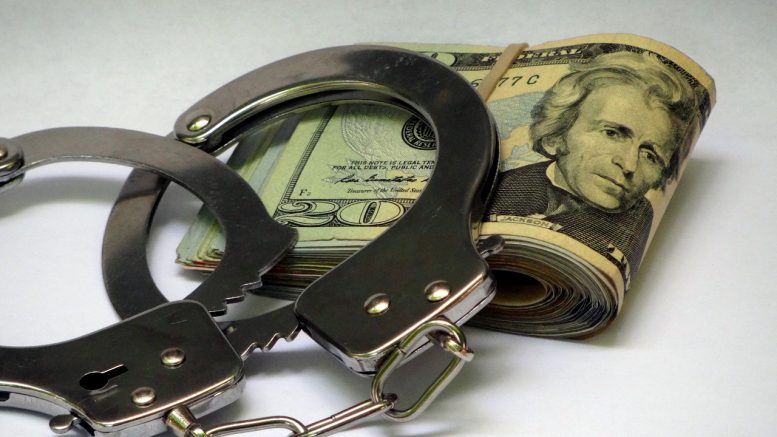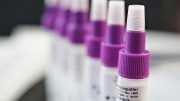Dr. William Kincaid, of Johnson City, Tennessee, and his manager, Michael Dean Combs were convicted in cases of using non-approved medications during their practice by the U.S. Department of Justice (DOJ). They had close ties with Canadian pharmacy business. If the plea of Dr. Kincaid will be accepted by the court he could face up to three years in prison. As for now, he also admitted his earning of about half a million dollars by billing the insurers (especially Medicaid) for the misbranded and non-approved medications obtained from the foreign supplier.
Here you can read about another lawsuit against a doctor who prescribed dangerous drug too much.
Dr. Kincaid was convicted on November 15 for purchasing injectable cancer drugs from Quality Specialty Products (QSP). He accepted the plea deal with the investigators. In exchange, he offered to assist them during the further investigation process.
According to Know News, Dr. Kincaid’s business manager, Michael Dean Combs was pled guilty on September 19, this year, in the same case. More information could be found on Knox’s website.
Both of them said that their earnings on misbranded non-approved medications were about $2 million. Dr. Kincaid was going to defraud Medicaid program of Tennessee state as well as his patients by introducing non-approved drugs as their brand-name alternatives, so he was charged with a felony.
According to the Wall Street Journal, he admitted the purchase of discounted versions of the medication used for a cancer treatment, Rituxan. Those versions of Rituxan were not approved for the use by the Food And Drug Administration (FDA). Dr.Kincaid pleaded guilty for purchasing, using the medication and providing his patients and Medicaid program with misleading information.
CBS 11, the local news station in Johnson City, Tennessee, asked patients about what they thought about the case of D. Kincaid. Patients told that they have some concerns about their health condition if they took counterfeit medication which is not approved by the FDA and stated about the loss of trust in the doctor.
The case of using counterfeit drug was not unexpected, since the FDA sent a warning letter to McLeod Cancer and Blood Center, where Dr. Kincaid worked, in March of this year. They notified them that their medical practice had purchased medications from QSP, which is also known as “Montana Health Solutions” and was a foreign supplier.
The FDA warned McLeod about non-approved medications that were distributed through QSP. On the top of that, in the statement, the agency informed that it knew about QSP’s distributors in the U.S. and their distribution may include counterfeit medications as well. In the plea agreement, Kincaid admitted that he and his colleagues made the decision to purchase medications from QSP in 2007. Those include injectable cancer medications and chemotherapies. He knew medications provided by QSP were not approved or inspected by the FDA.
The fraud disclosure
The medications were noticed by the practice nurses, and they told about the issue to the doctors. According to the plea agreement statement, McLeod’s nurses found out that packages of chemotherapy medications, which were bought through QSP, had labels on foreign languages meaning that those medications were not approved by the FDA and could not be used in the U.S. Combs, Kincaid, Famoyin, and Lamb made the decision to stop using QSP to obtain medication in the period from late 2007 to early 2008, after nurses raised their concerns with them.
Without nurses’ knowledge, Combs and Dr. Kincaid used misbranded medications again from QSP again, in August 2009. Combs and Kincaid prevented nurses from discovering the truth by shipping misbranded medications to a storage business Dr. Kincaid owned. After that, there were delivered by Combs and some other to McLeod Center and then placed into the drug storage. FDA-approved medications and those from QSP were “mixed up” in the control system. Approved medications from the U.S. distributors were shipped directly to McLeod Cancer and Blood Center, according to the plea agreement.
In February 2012, Montana Healthcare Solutions and Quality Specialty Products were noticed by Federal authorities because of the FDA report about their involvement in the counterfeit Avastin distribution. Further investigations showed that Canada Drugs (online pharmacy based in Canada) was the owner of QSP and did business in collaboration with MHS lately, according to the plea agreement of Combs. Kincaid confessed that they bought non-approved drugs for more than two years after 2007-2008 episode from the same suppliers. They obtained cancer drugs from QSP and MHS in the period from August 2009 to February 2012.
Pharmaceutical Security Institute CEO and president, Tom Kubic, advised patients to ask their doctor to show them the package of the medications that would be used for their treatment. In this case, they could know if the package is familiar, and tell their doctors about their concern if the medication or its packaging is something unfamiliar or new to them.





Cool posting, P.N.M., I like it